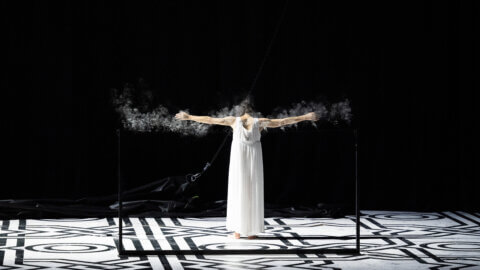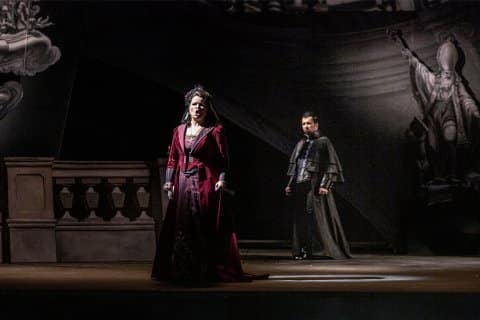THE FLYING DUTCHMAN – BAYREUTH
★★★★☆☆

Photo: Enrico Nawrath
REVIEW THE FLYING DUTCHMAN IN BAYREUTH: BURNING HATRED AND ICY REVENGE
Not much is business as usual in Russian director and set designer Dmitri Tcherniakov’s staging of The Flying Dutchman at the 2024 Wagner Festival in Bayreuth.
The ever-challenging director has provided the story of the ghostly captain with a video prologue that changes the entire definition of the plot, radically reinterpreting The Dutchman from an epic of undying love to an icy revenge drama with undertones of traumatic madness.
Picture this: In a video flashback, we see the Dutchman as a young boy in the company of his mother, who soon has hot sex up against a house wall with citizen Daland, soon after rejects her, and somehow turns the inhabitants of the provincial town against her.
Busted, shamed and thrown away, the mother takes her own life by hanging herself from one of the buildings, throwing herself off and dangling from the noose while the little boy looks on – and the stormy overture with the familiar leitmotifs of rushing winds and undulating strings kicks in.
From that moment on, this Bayreuth version of Wagner’s early classic is all about the Dutchman’s revenge on Daland and the tight-knit, vicious community.
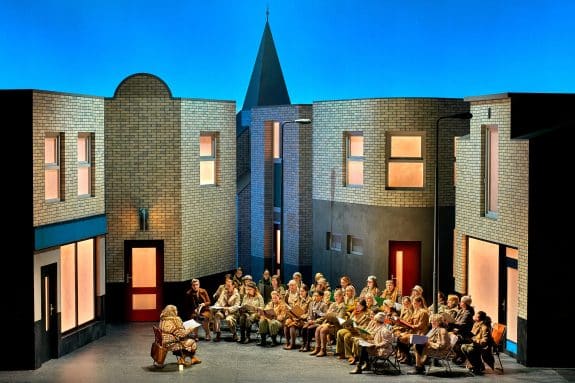
Photo: Enrico Nawrath
In a curiously underprepared set of 1970s-style provincial buildings of yellow brick and ugly thermopane windows, a handful of semi-lifelike smalltown houses skate around the stage, between which the townspeople act with and against the Dutchman’s entourage of brought thugs.
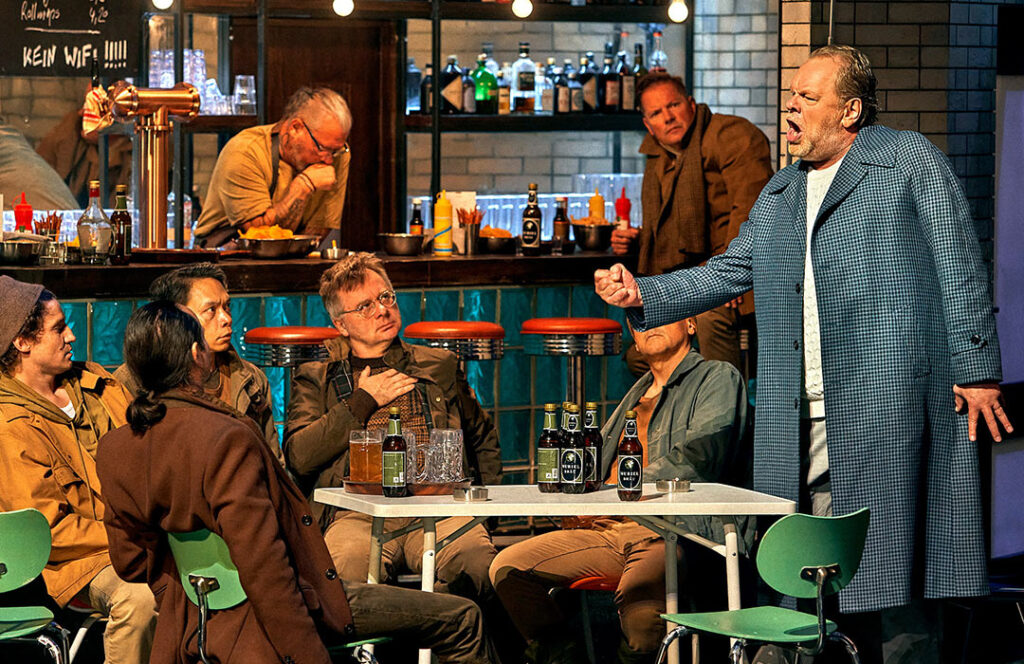
Photo: Enrico Nawrath
There’s no ghost ship and no lashing sea – the show takes place around a seedy bar in the town square and in a hideous conservatory at the front of a yellow brick house, where the fatal meeting between the Dutchman and Daland’s daughter Senta takes place.
To say the least, excellent vocal performances are delivered by Elisabeth Theige (Senta), Georg Zeppenfeld (Daland), Eric Cutler (Erik) and Tomasz Konieczny (The Dutchman), who was a last-minute stand-in for audience favorite Michael Volle, one of the greatest and most sought-after baritones of our time.
Volle had reportedly suffered a leg injury and had completed several performances with a cane before he had to throw in the towel.
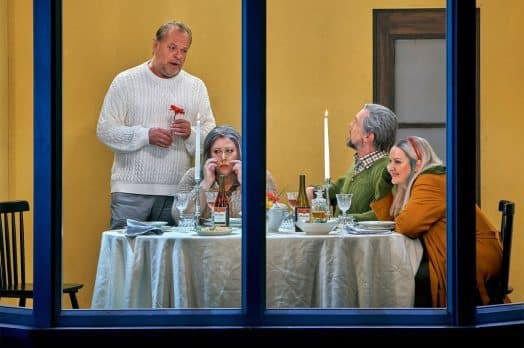
Photo: Enrico Nawrath
Tcherniakov (44) has taken the story apart and put it back together in a new way in an updated, unattractive universe, which certainly gives a boost to the idea of emotionless revenge, but also reinterprets the story of the love victim so that it is almost unrecognizable.
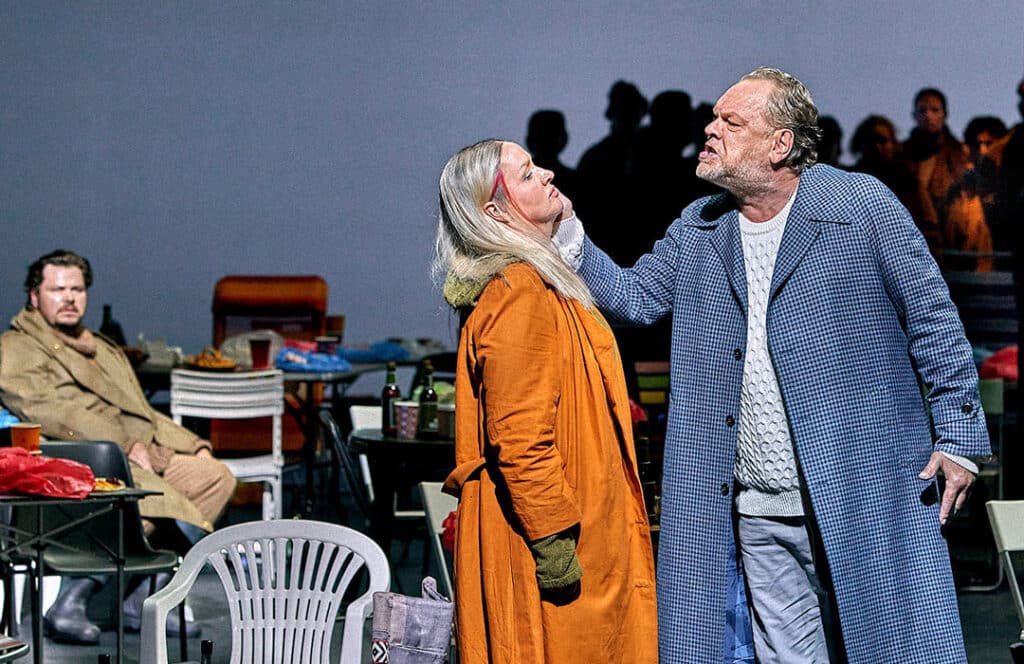
Photo: Enrico Nawrath
No, Senta doesn’t throw herself off a cliff to save the Dutchman and escape the small-town world of stifling conformity as in many other productions.
In fact, the Dutchman ends up being shot in the middle of the square, thus abruptly releasing him from his curse, while the entire town, including the house where his mother hanged herself, is destroyed in a technically impressive sea of flames.
Conductor Oksana Lyniv and the Bayreuth Festival Orchestra, despite some criticism of the musical interpretation, have many shares in the tuxedo-clad audience’s enthusiastic applause at curtain call.
Be that as it may, the director’s careful remodeling of the story led to some odd moments where the stage drama and musical accompaniment did not hang together very convincingly.
For opera fans who have seen The Dutchman several times, this was an interesting new addition to Wagner’s iconic opera house, earning four stars from GOT TO SEE THIS.

